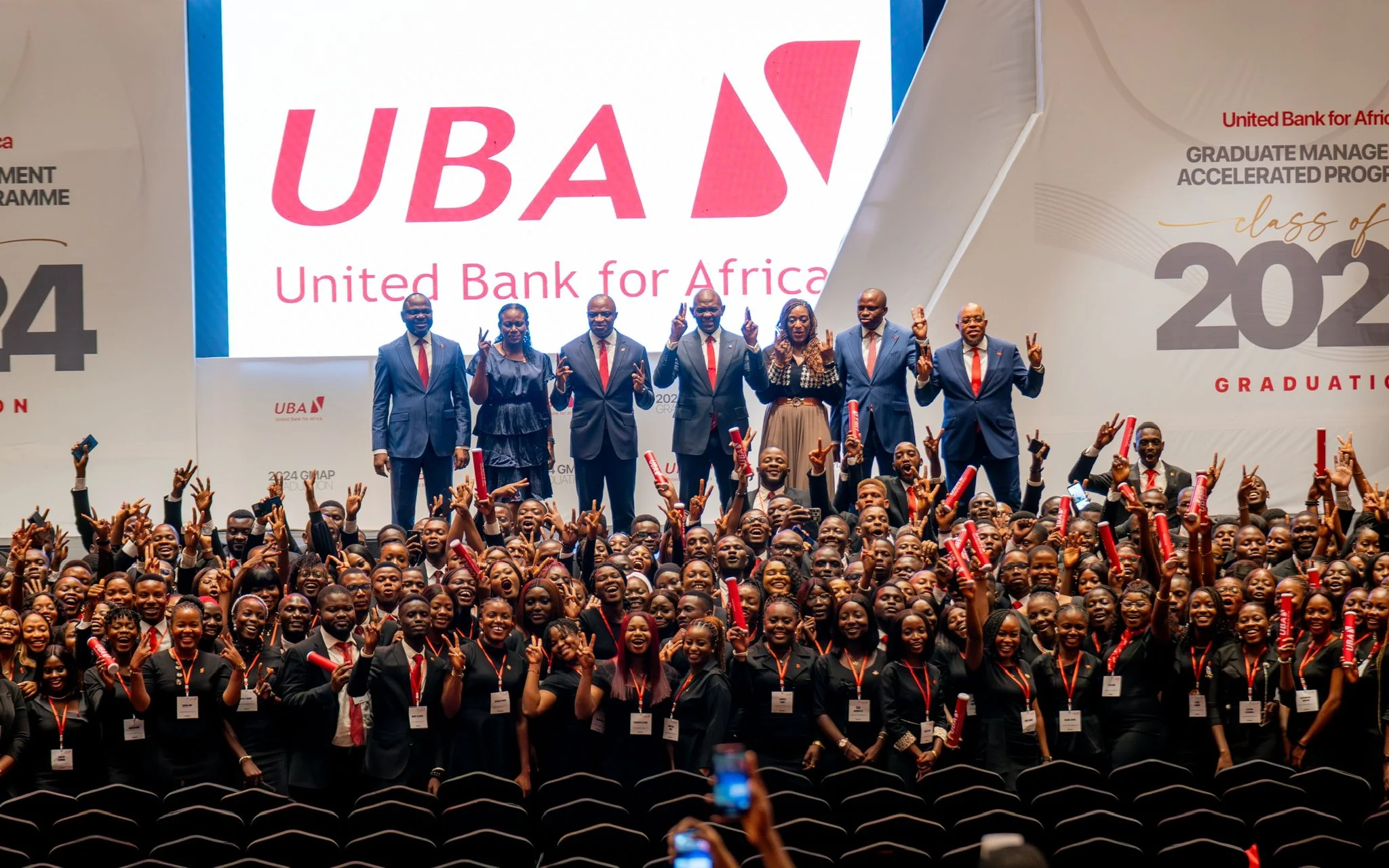Business
IWD: Five tips to create a more inclusive workplace for women

International Women’s Day (IWD) is a day set aside annually on March 8 to celebrate women’s impact, values, and achievements across all aspects of life.
As we commemorate this day dedicated to female empowerment, it is quite important to also reflect on the theme of the year ‘Inspire Inclusion’ and how it can be implemented.
In light of this theme, TheCable Lifestyle delves into ways to promote gender inclusion in the workplace to uplift and invest in women’s talents.
Increase inclusion through hiring practices
Gender inclusion and diversity ultimately start with the recruitment process. If there is bias in hiring and interviewing, having a gender-inclusive workplace might not be feasible.
There are ways to create a diverse hiring process which include the use of gender-inclusive language in job postings to attract diverse candidates and actively seek out female talent.
Also, having a diverse interview panel or blind resume screening to ensure fair evaluation based on qualifications rather than gender.
Encourage inclusive leadership
Leadership plays a vital role in driving gender diversity and inclusion efforts. So it is important to encourage gender inclusion in leadership teams and roles.
Leaders should be trained to lead with empathy, inclusivity, and a commitment to gender equality.
Also, there should be leadership development programs tailored to women, and offer training, coaching, and networking opportunities to help them ascend to leadership roles.
Promote visibility and recognition
Female employees’ achievements, contributions, and impact should be showcased.
Their contribution can be showcased and appreciated through internal recognition programs, awards, and leadership opportunities.
Organisations can even celebrate International Women’s Day by highlighting the stories and successes of women on the day.
Create flexible work arrangement
Offering flexible work arrangements is pivotal in assisting women in balancing their professional and personal responsibilities.
So recognize the unique needs of women by offering flexible work arrangements and remote work opportunities.
These arrangements will not only benefit women but also have the potential to enhance overall employee satisfaction, and productivity and increase work-life balance.
Encourage open dialogue and feedback
Create forums for open dialogue and feedback where female employees can voice their concerns, share their experiences, and offer suggestions for improvement.
Actively listen to their feedback and take concrete steps to address any barriers or biases they may encounter.
Business
‘Due to CBN directive’ — OPay to close accounts trading crypto

OPay, a Nigerian-based financial technology firm, has warned its customers against using their accounts to facilitate cryptocurrency transactions.
The fintech firm, in a statement on Friday, said due to a directive from the Central Bank of Nigeria (CBN), it will close accounts involved in crypto trading.
The statement follows the recent directive by CBN to some financial technology companies (Fintechs) to pause the onboarding of new customers until further notice.
Some fintech firms confirmed compliance with the CBN directive on April 30.
In the statement, OPay said in “compliance with the CBN directive, please note that OPay prohibits any cryptocurrency and all virtual currency trading”.
“Any account engaging in such activities will be closed, and customer information will be shared with regulatory authorities,” OPay said.
“Please ensure that your account does not involve any cryptocurrency or any other virtual currency transaction.”
On April 24, a federal high court in Abuja delivered a ruling that granted an interim order to the Economic and Financial Crimes Commission (EFCC) to freeze at least 1,146 bank accounts belonging to individuals and companies over “unauthorised foreign exchange” transactions.
TheCable Index analysis of the 1,146 accounts showed 90 percent of the affected accounts are operated by commercial banks, while 10 percent are operated by fintechs.
Business
FIRS asks banks to charge stamp duty on mortgaged-backed loans

The Federal Inland Revenue Service (FIRS) has asked banks to deduct a 0.375 percent stamp duty charge on all mortgaged-backed loans and bonds.
Mortgage-backed loans are loans banks extend to individuals or entities to buy a home and repay the loan amount over time with interest.
Stamp duty is a levy charged on physical and electronic instruments or documents.
In an email sent by Access Bank to customers on Thursday, the new directive which took immediate effect, does not affect old loans with already agreed terms and conditions.
“We would like to inform you that the Federal Inland Revenue Service (FIRS) has directed all Nigerian banks to implement stamp duty on certain transactions that require duty payments such as contracts and legal mortgages,” Access Bank said.
“In compliance with this directive, we have taken measures to streamline the process to make transactions more convenient for you.
“To this end, a stamp duty charge of 0.375% will be applied to loans backed by legal mortgage, shares, debentures, or bonds. The charge will be applied on the value of the legal mortgage, shares, debentures or Bonds and remitted to the Federal Inland Revenue Services.
“However, all previously approved loans will remain unchanged and should be repaid in full as per the agreed terms and conditions.
“We are committed to providing you with exceptional service.”
The development follows FIRS’ effort to increase federal government revenue through taxes.
Business
Unemployment is Africa’s biggest challenge, says Elumelu as UBA employs 398

Tony Elumelu, group chairman of United Bank for Africa (UBA), says unemployment is one of the biggest challenges on the continent.
Elumelu spoke at the induction ceremony of 398 young Africans who were inducted after participating in a six-month graduate management accelerator programme (GMAP) in Lagos on May 2.
The graduates are from six African countries; Nigeria, Ghana, Cameroun, Kenya, Tanzania, and Zambia.
Speaking at the event, Elumelu congratulated all the graduates for completing the intense capacity-building programme and combining learning with on-the-job training experience, garnered while rotating across several departments and units in the bank.
The economist also highlighted the bank’s passion for youth empowerment in Africa to bridge the unemployment gap.
“For me, these young UBA Graduates are a testament to who we are: a truly pan-African Group, that invests in African talent. This milestone is more than just numbers,” Elumelu said.
“It signifies UBA’s commitment to youth empowerment. Unemployment is the greatest challenge we face – a tragic and cruel betrayal of a generation.
“We know governments alone cannot create all the jobs we need – so it is up to us, the African private sector, to partner with our government in improving lives and livelihoods.
“This is Africapitalism, and it is gratifying to see UBA play its part. UBA is dedicated to creating a positive impact, through the GMAP programme UBA is creating employment, boosting economic growth, and transforming lives across Africa.
“At UBA, identifying these young ones, bringing them to the centre, training them, equipping them for the future and the task ahead, not just for a career in UBA, but wherever they end up remains our passion, because this is how we play our role as a Pan-African bank, in helping to empower the next generation, which is the African youth. We are helping to create employment and this for us is our driving force.”
Earlier in his speech, Oliver Alawuba, UBA’s group managing director (GMD) and chief executive officer (CEO), commended the graduating class for their unwavering commitment and emphasised the programme’s role in cultivating the next generation of UBA leaders.
“Your dedication, resilience, and unwavering commitment have been nothing short of inspiring,” Alawuba said.
“Each of you has demonstrated the qualities of a true UBA ambassador, and today, we celebrate not just your achievements but also the collective strength of our UBA family.”
Modupe Akindele, UBA’s group head of human resources, said the bank remains committed to nurturing talent and leadership within the organisation.
Akindele said the GMAP programme, which marked its second graduation, will be a continuous initiative, as it culminates an intensive journey towards leadership excellence.
“Already, the programme has graduated over 1,100 graduates, that is about 700 in 2023 and now we have 398 graduates,” she said.
Akindele said the bank will continue to nurture the youth to their full potential.
-

 Crime5 days ago
Crime5 days agoUK-based Nigerian doctor, Tijion Esho loses licences over sex for free Botox injections
-

 News1 week ago
News1 week ago‘Mischievous narrative’ — Yahaya Bello’s media office reacts to ‘American school refunding $760k’ claim
-

 Entertainment1 week ago
Entertainment1 week agoFamily announces burial arrangements for junior pope
-

 Entertainment5 days ago
Entertainment5 days agoGunmen abduct singer Gnewzy in Delta, demand $200k ransom
-

 News1 week ago
News1 week agoShake-up in EFCC as Olukoyede appoints chief of staff, 14 directors
-

 Celebrities5 days ago
Celebrities5 days agoDavido claims Wizkid begged him to join proposed joint tour
-

 Entertainment1 week ago
Entertainment1 week agoDoris Simeon reveals why she relocated to America
-

 News5 days ago
News5 days agoRowdy session as senators fight over seats in refurbished chamber


















